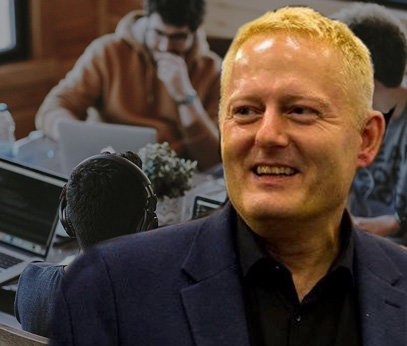Rethinking Choice: How to Streamline Decisions and Delight Your Customers

By Colin Shaw, Founder of Beyond Philosophy and Host of ‘The Intuitive Customer Podcast’
We need to rethink Customer choice. At first glance, offering a range of options seems inherently beneficial, catering to a spectrum of tastes and needs. However, delving deeper into the psychology of decision-making reveals a counterintuitive truth: too much choice can be a detriment, leading to customer confusion and dissatisfaction. This paradox of choice is a nuanced aspect of consumer behaviour that warrants a closer look.
Take the insightful experiment conducted by Stanford's Professor Itamar Simonson. His approach was simple yet ingenious: use snack choices as a research tool to uncover deeper truths about our decision-making processes. Simonson's findings were revealing; when faced with repeated choices, many prefer to stick with their initial selection rather than explore new options. This tendency highlights a fundamental aspect of human behaviour: the comfort of familiarity often trumps the allure of variety.
In Simonson's study, students were split into two groups. One group made snack selections weekly, while the other chose for three weeks at once. The long-term planners demonstrated a greater desire for variety than their counterparts who made weekly choices. This suggests that when thinking ahead, we're more open to diversification, but at the moment, we lean towards what we know and love.
My own experiences mirror these findings. My family enjoys vegan meals from a company called AllPlants. They provide frozen meals, which you order in advance. Despite my fondness for their lasagna and shepherd's pie, I often opt for noodle dishes for variety's sake. Yet, consistently, it's the noodle dishes that linger untouched in our freezer. Similarly, my Netflix queue is a testament to my aspirational viewing plans, which seldom come to fruition as I revert to my familiar favourite genre.
Why is this?
This dichotomy extends to the concept of our 'future self,' a notion that we're somehow more evolved and willing to make different choices in the future. The classic marshmallow experiment, where children choose between immediate gratification and a delayed reward, exemplifies this. Most children's struggle in this experiment illustrates the Immediacy Bias, which often trumps our more rational, future-oriented intentions.
Our perception of our future selves can lead to optimistic but unrealistic expectations. For instance, my spontaneous purchase of a back car seat cover for dogs, envisioned as a necessity by my future self, ended up unused, as the reality of installing and maintaining it outweighed its perceived future utility. This mismatch between our present actions and future intentions can result in decisions that don't align with our actual behavior or preferences.
Understanding this dynamic is crucial for businesses. Recognising that the immediacy and timing of consumption influences customers' choices can guide more effective marketing strategies. Products that appeal to immediate needs and desires may benefit from strategies that promote impulse buying, such as attractive discounts or limited-time offers. Conversely, strategies that encourage advance planning and commitment can be more effective for products that cater to our aspirational future selves.
What does this all mean practically for your Customer Experience? Ask yourself this. Why do customers buy something? Are they buying for immediate consumption, or are they buying for their future selves? If the latter, you may expect a lot of returns or online reviews about how they bought your product but ‘never used it.’ While choice is a cornerstone of customer empowerment, its complexity must be navigated with care. Balancing the need for variety with the comfort of familiarity and aligning offerings with the customers' immediate versus future-oriented selves can transform the customer experience. By appreciating and catering to these nuanced aspects of decision-making, businesses can provide products and services and facilitate journeys toward the selves that customers aspire to become.
About the author
Colin Shaw is a LinkedIn 'Top Voice' with a massive 280,000 followers and 82,000 loyal subscribers to his 'Why Customers Buy' newsletter. Shaw is named one of the world's 'Top 150 Business Influencers' by LinkedIn. His company, Beyond Philosophy LLC, has been selected four times by the Financial Times as a top management consultancy. Shaw is co-host of the top 2% podcast 'The Intuitive Customer'—with over 600,000 downloads—and author of eight best-sellers on customer experience; Shaw is a sought-after keynote speaker.


